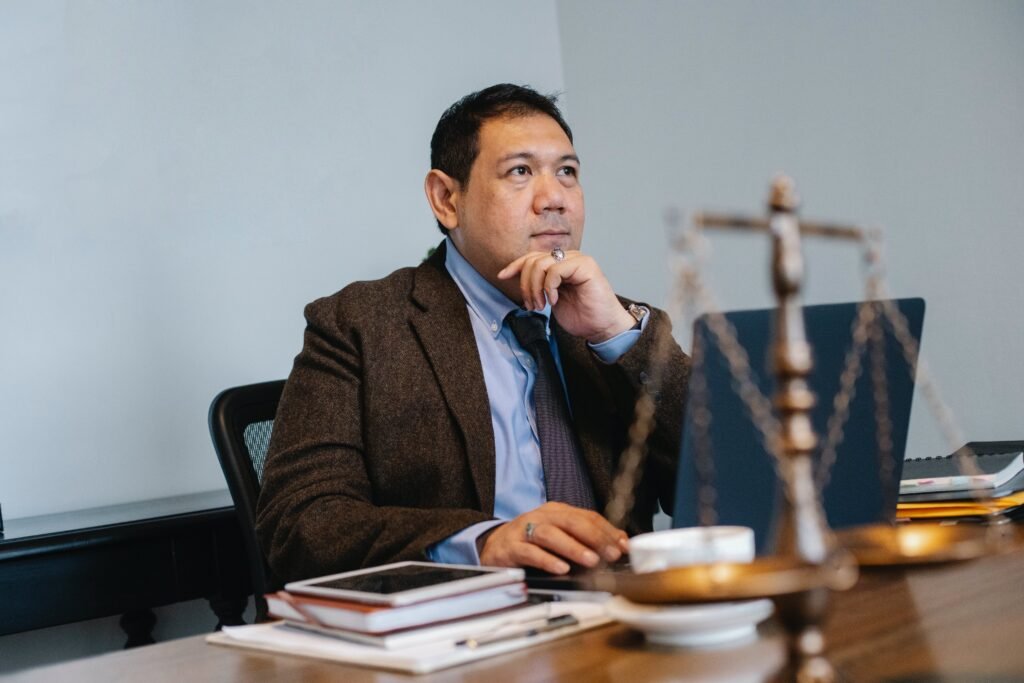Small and medium enterprises (SMEs) often face financial challenges in the UAE. One of the most daunting scenarios is insolvency. This article will give you an overview of the bankruptcy law in UAE and also debunk some misconceptions associated with it.
What Is Insolvency?
Insolvency refers to a situation where a company cannot fulfil its financial obligations and pay off its debts. UAE’s legal system provides a special insolvency regime to deal with companies that have become insolvent or are likely to become insolvent, i.e., Federal Law No. 9 of 2016, as amended (“Bankruptcy Law”).
The Bankruptcy Law was established to simplify and streamline insolvency procedures. The legislation:
– Offers protection to companies, directors, and managers in the event of insolvency;
– Facilitates debt settlements in feasible instalments;
– Allows for asset liquidation without imposing personal liability on directors or managers;
– Empowers courts to supervise the entire insolvency process;
– Promotes financial rehabilitation through mechanisms like Preventive Composition to help businesses negotiate settlements with creditors.
The Bankruptcy Law allows the debtor company to pay debts via a settlement plan or apply directly for bankruptcy.
Sameer A. Khan
Founder & Managing Partner SK Legal
What is Preventive Composition?
The Bankruptcy Law allows the debtor company to pay debts via a settlement plan or apply directly for bankruptcy. If a company is facing financial hardships (but not yet insolvent) and requires assistance to reach a settlement with its creditors, it may apply to the Court for Preventive Composition.
A company can also apply for the same if it has been insolvent for less than thirty consecutive business days. Once the application for Preventive Composition is submitted, a court-appointed expert prepares a report on the financial position of the debtor company, which must include its opinion on whether the company’s assets are sufficient to execute Preventive Composition.
If the Court accepts the application, it appoints a trustee to oversee the restructuring plan. The trustee must prepare an inventory of the company’s assets and a record of all its creditors. The company and the trustee then work together to prepare a draft Preventive Composition scheme, which is submitted to the Court.
The draft scheme shall include the following:
– The possibility of the debtor company’s business to re-generate profits.
– Activities of the debtor company that must be suspended or terminated.
– Terms and conditions of settlement of any liabilities.
– Any performance bonds that may be requested from the debtor company.
– Any proposal to purchase all or part of the business of the debtor company.
– Grace periods and payment deductions.
– The possibility of converting the debt to share capital.
– Any proposal to consolidate, create, redeem, sell, or replace any necessary guarantees to implement the draft scheme.
– The scheme implementation period.
The Court must then review the draft scheme within ten days of its submission. If approved, the trustee shall invite the creditors (within five business days) for a meeting to discuss and vote on the draft scheme.
Bankruptcy Proceedings
A company can directly file for bankruptcy under the Bankruptcy Law if it has ceased payment of due debts for over 30 consecutive business days. It can be due to financial hardships, or the debtor’s assets are insufficient to cover its due liabilities at any time.
A creditor or a group of creditors may also make a bankruptcy application where the total amount of their debts is not less than AED 100,000, provided the debtor company has been formally notified to pay the debt and it failed to do so within thirty consecutive business days from the date of notification.
Once the bankruptcy application is submitted, a court-appointed expert prepares a report on the company’s financial position, which must include its opinion on whether restructuring (similar to Preventive Composition) would be possible and whether the company’s assets are sufficient to cover the costs of the restructuring process.
When Preventive Composition or restructuring is inappropriate, the Court may order liquidation. The liquidation process is undertaken by one or more court-appointed trustees. The trustee liquidates all the debtor’s assets and distributes the proceeds amongst the creditors according to the order of priority specified in the Bankruptcy Law.
Debunking Common Misconceptions
A prevalent thinking among SMEs in the UAE facing bankruptcy is to replace existing directors or managers with new ones (preferably those who can easily leave the country) in order to shield them from personal liability for the company’s debts.
However, there are better ways of dealing with insolvency. If the procedure under the Bankruptcy Law is followed, the directors and managers would likely avoid personal liability.
When Can Directors and Managers Be Held Liable?
The directors and managers may face personal liability under the Bankruptcy Law. However, their liability is not automatically engaged.
To be personally liable, they must have contributed to the losses that rendered the company insolvent by committing certain acts such as disposing of assets at lower than market value, disposing of property without consideration, or against insufficient consideration.
The directors and managers can also be held criminally liable under Bankruptcy Law when they are found guilty of any act involving fraud, embezzlement, forgery, or gross misconduct.
The Right Approach to Insolvency
Instead of seeking shortcuts or evasive tactics, companies facing financial distress should file proceedings under the Bankruptcy Law. It provides a comprehensive legal framework for financial restructuring and liquidation of companies.
Get Expert Guidance on Bankruptcy Law with SK Legal
Navigating the intricacies of insolvency and bankruptcy requires more than just knowledge. It demands experience, expertise, and a deep understanding of the local legal landscape.
We at SK Legal provide the following services:
- Comprehensive legal consultancy: Whether you’re dealing with civil or commercial disputes, our team is equipped to provide you with the best legal advice.
- Support during negotiations: Our legal advisory services extend to assisting clients during crucial negotiations, ensuring their interests are always protected.
- Collaboration with local law firms: We understand the nuances of local jurisdictions. We collaborate with licensed local law firms to oversee court cases, especially in the DIFC, Dubai, and Sharjah courts.
Frequently Asked Questions About Bankruptcy Law
The Bankruptcy Law applies to the companies and establishments in the Free Zones that are not governed by special provisions regulating preventive composition procedures, restructuring, or bankruptcy procedures.
The application shall set out the reasons for filing bankruptcy and shall be accompanied by the following documents:
- A memorandum including a brief description of the Debtor’s economic and financial position, information about the Debtor’s Assets, and a detailed account of the Debtor’s employees.
- A certified copy of the commercial, industrial, or professional license of the Debtor and the Debtor’s commercial register issued by the competent authority in the Emirate.
- A copy of the accounting books or financial statements relating to the Debtor’s Business for the year preceding the application.
- A report including the following:
- The Debtor’s cash flow and profit and loss projections for the twelve months following the filing of the application.
- Statement of the names of the known creditors and debtors with their addresses, the amounts of their respective entitlements or debts, and the securities provided, if any.
- A detailed statement of the Debtor’s movable and immovable Assets, the estimated value of each asset at the date of filing the application, and a statement of any securities or rights of third parties over the Assets.
- The Debtor’s nomination of a trustee to be appointed to undertake the procedures pursuant to the provisions of this Law.
- Where the applicant is a corporate entity, the application shall be accompanied by a copy of the resolution of the company’s competent authority authorising the applicant to file the commencement application and copies of the incorporation documents of the company and any amendments to that, as filed with the competent authority in the Emirate.
- Any other documents supporting the filing of the application.
- A report issued by the competent Credit Bureau Authority in UAE.
The Court shall reject an application for Preventive Composition in the following cases:
- The debtor has already gone through the process or filed for bankruptcy.
- The debtor has failed to provide the requisite documents or submits the same incomplete without reason;
- The debtor evidently acts in bad faith, or the application constitutes an abuse of litigation proceedings.
- A final judgment of conviction is delivered against the debtor in one of the crimes set out in the Bankruptcy Law or a crime of forgery, stealth, fraudulence, breach of trust, or appropriation of public monies unless the debtor is rehabilitated.
- Preventive Composition is evidently inappropriate to the debtor based on the data and documents submitted with the application or the report prepared by the expert.
- The Court decides on the bankruptcy procedure.
- The debtor fails to pay the expenses required for the procedure or provide the required bank guarantee.
The Bankruptcy Law applies to commercial companies and traders. Personal Insolvency Law is a separate law that deals with the insolvency of natural persons (Federal Decree-Law No. 19 of 2019).
When a company in the UAE goes bankrupt, employees may continue working or face potential layoffs. They’re entitled to outstanding salaries and benefits, but getting paid may depend on the company’s financial situation. Legal action might be necessary to recover unpaid dues. In some cases, employees could transfer to a new employer if the company is restructured or acquired. It’s crucial for employees to know their rights under UAE labor law and seek legal advice if needed.
Disclaimer
This publication does not provide any legal advice and it is for information purposes only. You should not rely upon the material or information in this publication as a basis for making any business, legal or other decisions. Therefore, any reliance on such material is strictly at your own risk.
Share This Post On:
Sameer A Khan
Let SK Legal be your trusted partner in navigating Insolvency and Bankruptcy Law
Don’t navigate these challenges alone. For personalised assistance and advice on insolvency and bankruptcy law in UAE, contact us at [email protected].
CONTRIBUTOR

Sameer Khan is one of the Best Legal Consultants in UAE, and Founder and Managing Partner of SK Legal. He has been based in UAE for the past 14 years. During this time, he has successfully provided legal services to several prominent companies and private clients and has advised and represented them on a variety of projects in the UAE.
View all posts





